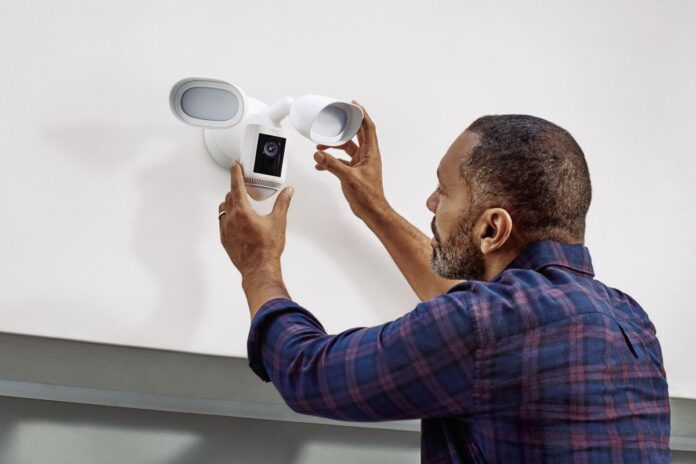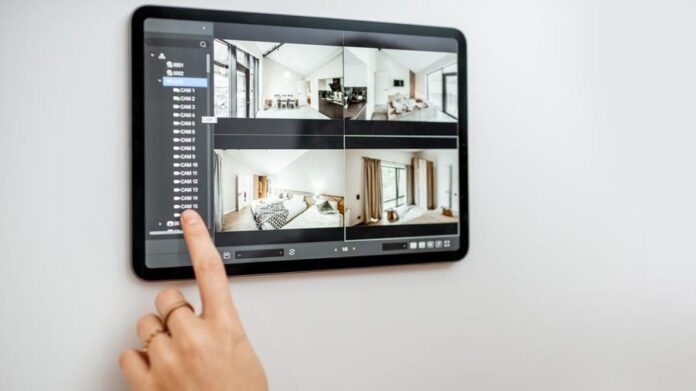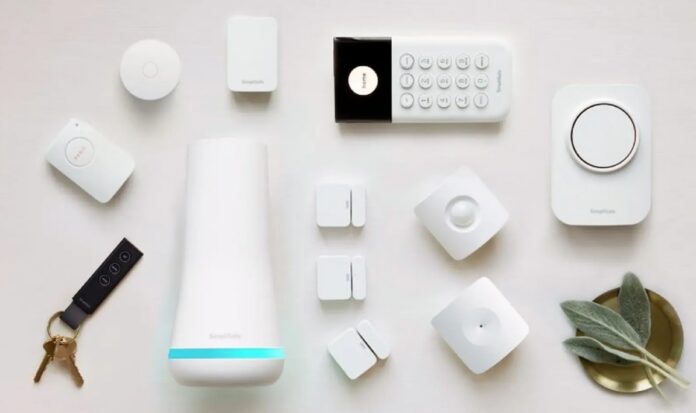
Table of Contents
Verizon recently made the news after announcing a free home security giveaway to new customers of their FIOS high-speed internet service. The story-making of the news was probably more the result of good marketing than the announcement actually being newsworthy.
Let’s face it, giving away free home security equipment is not a new tactic. Home security companies have been doing it for decades. With enough resources, top companies in the market give away the finest home security equipment.
The big difference here is that Verizon isn’t a home security provider. They are a phone and wireless internet provider. But they have teamed up with SimpliSafe for a new promotion designed to benefit both companies.
Verizon gets new subscribers while SimpliSafe ostensibly gets consumers who will pay for their monitoring service and upgrade their basic systems with new equipment.
The Verizon Deal
According to a company press release, Verizon intends to give new subscribers an entry-level security system consisting of an interior video camera, two entry sensors, a keypad, and a base station. Customers will also get one free month of 24/7 monitoring from SimpliSafe. The deal is worth some $400 at retail.
Verizon is pushing the promotion as yet another way to take advantage of what they claim is the fastest internet available. Whether or not this is true is debatable. But either way, consumers will have to make a decision after the first month of monitoring service. Will they continue with professional monitoring or go the DIY route?
SimpliSafe is obviously hoping that most continue paying for a monthly monitoring package. Some undoubtedly will while others will not. The one thing everyone can count on is that the consumer will not get anything for free. Even what appears to be a free security system needs to be paid for somehow.
Security Equipment as Bait

Let us assume for one minute that Verizon and SimpliSafe have no intention of passing the cost of entry-level security systems on to customers through higher service fees.
Let’s say they are generally willing to take the financial hit themselves. Why would they do that? The answer is as simple as looking at security equipment as bait.
Both companies want more subscribers. They are like anglers trying to catch fish. They throw the bait out there and hope for some bites. They reel in whatever takes the bait.
Verizon and SimpliSafe both know that they will not retain every subscriber who takes them up on the free security system deal.
Likewise, anglers are never guaranteed the ability to keep the fish they catch. Sometimes those fish need to be thrown back. The goal though is to land more fish than not.
Free Installation Is Similar

Vivint, a company known around the nation for its home security and automation equipment, says the free installation deal so many companies offer is essentially the same tactic as the one being utilized by Verizon. A local dealer offers free installation and/or free equipment in order to bring in new customers.
This is not necessarily a bad thing. Free installation and equipment are at least worth looking into. However, smart consumers do not just accept free deals blindly. They go through written agreements with a fine-tooth comb. They look at all the small print explicitly so that they know exactly what they are getting themselves into.
They say consumers do not have to be caught off guard by pricing, equipment requirements, contract length, or anything else. Everything is written in black-and-white for consumers to see for themselves. And yes, consumers have the legal right to take contracts to their attorneys for perusal prior to signing.
Things to Pay Attention To
Just about every free home security deal will come with the paperwork of some sort. Even if the paperwork is offered digitally, be sure to read and understand everything before you sign. Experts suggest paying attention to the following things:
1. Monthly Fees

Because free security system deals are intended to bring new customers into the fold, the ‘free’ portion doesn’t last forever. There will be monthly fees to pay at some point. Dig through the paperwork until you find those fees. If the paperwork does not disclose them, do not sign. You need to know what you will be paying each month, to the penny.
While you are at it, carefully scan the paperwork in search of additional fees. Some companies charge for future equipment upgrades. Others might charge a convenience fee for making digital payments or receiving paper statements. If there is a way to assess a fee, you need to look for it.
2. Contract Length
It is not unusual for home security companies to require contracts of a certain length. Typically, that means 12 months at a time. Yet you cannot be sure without reading a contract’s details.
You need to know exactly how long the contract is good for. You also need to know the actual start date and any penalties you might face for early termination. If you find anything that doesn’t sit well with you, don’t sign.
3. Equipment Ownership

Home security companies offering free installation generally work on one of two models for their equipment. The first model involves the customer paying a monthly rental fee for the equipment. All equipment is owned and maintained by the security company. In some cases, equipment upgrades are free.
The second model transfers equipment ownership to the customer. Equipment may be provided free at the time of installation, or consumers may have to pay for it – either at the time of installation or through monthly installments.
At any rate, you really should know who owns the equipment in your home. It makes a difference when you want to upgrade, move, or even disconnect from your current provider.
Verizon and SimpliSafe plan to give away free security systems and one month of monitoring to new FIOS subscribers. That’s fine. Just note that their plan is not new or revolutionary. It is an old tactic the security industry has utilized from the very beginning.

















